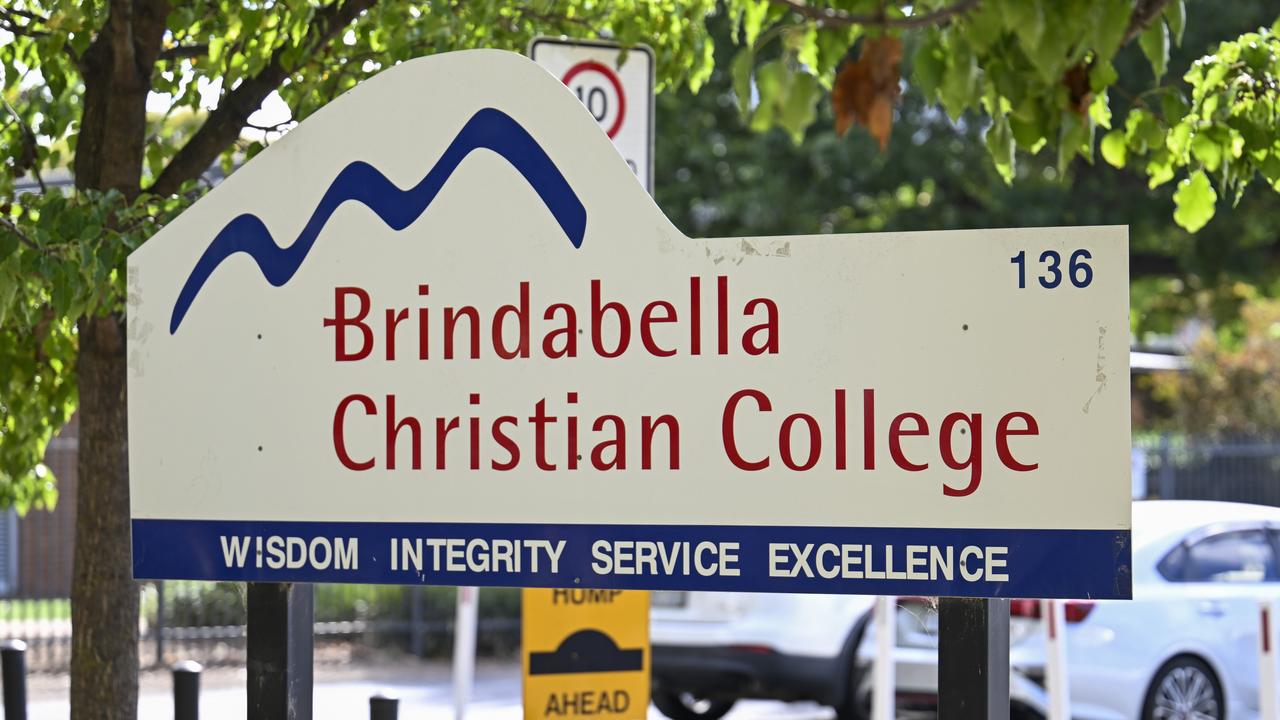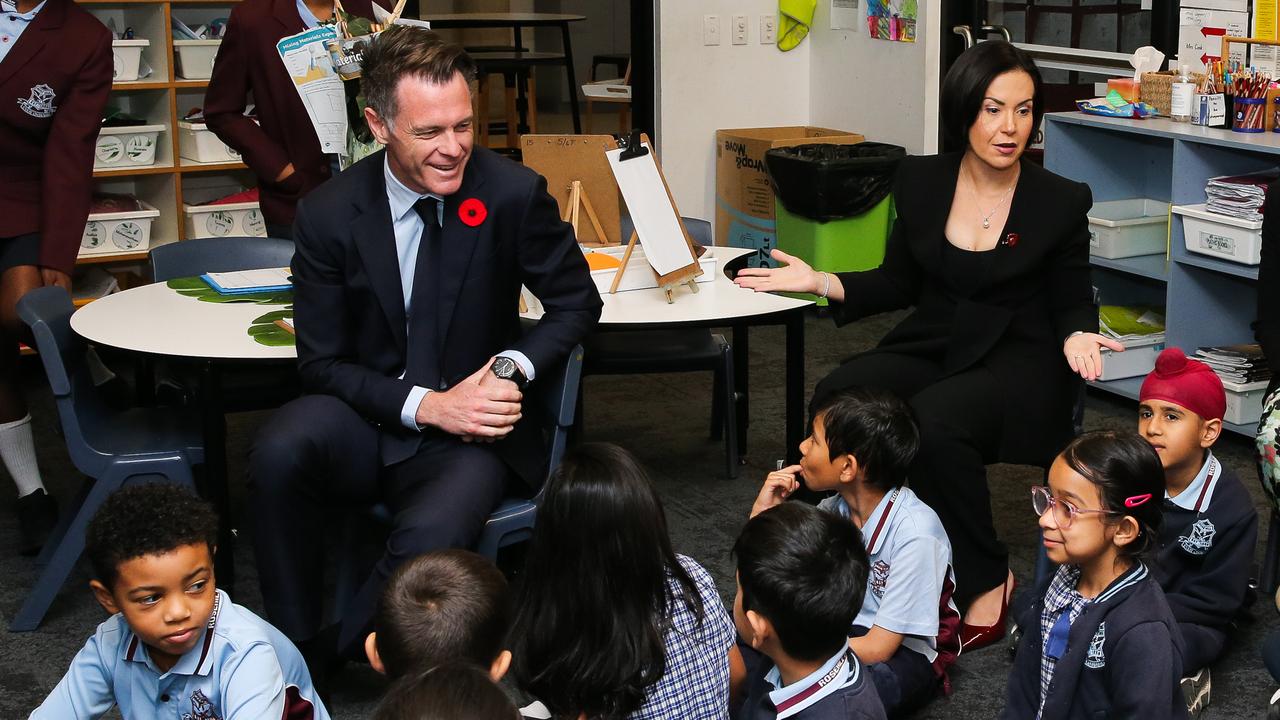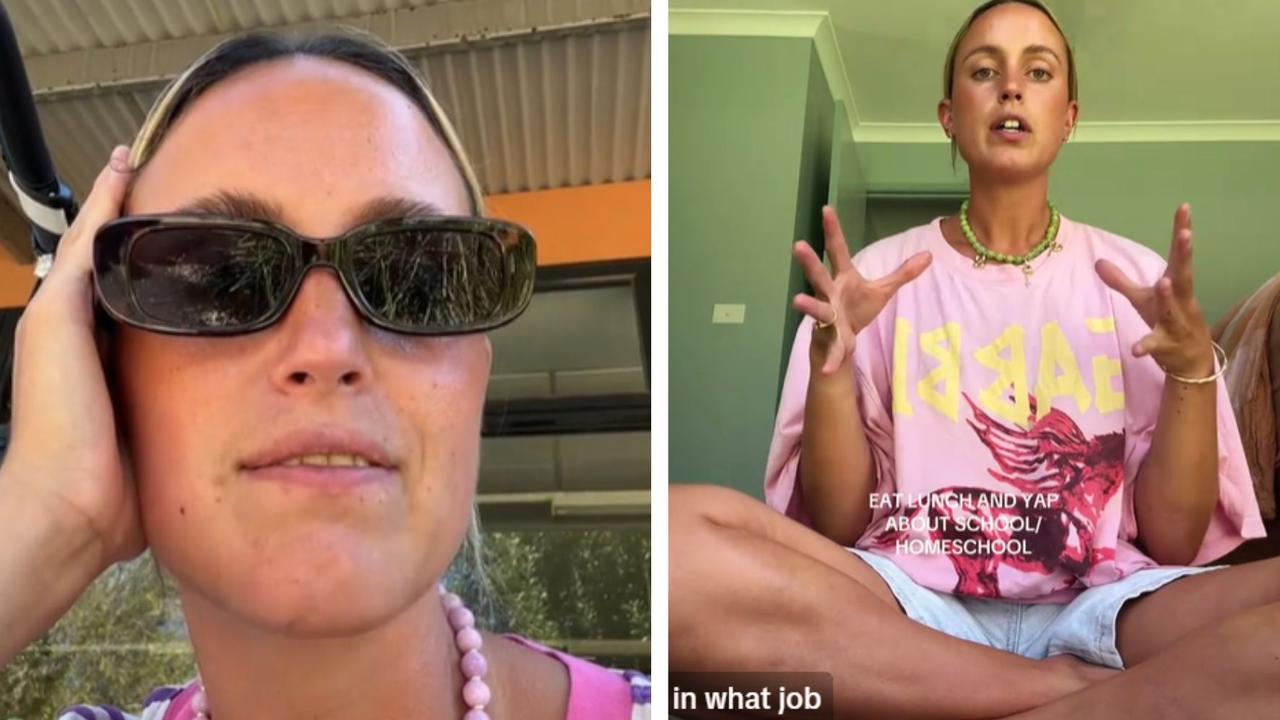Students told to put ‘hands on the ground’, repeat ‘always will be Aboriginal land’ before assembly
Primary students are being told to put their “hands on the ground” and say “always will be Aboriginal land” during the Acknowledgement of Country.
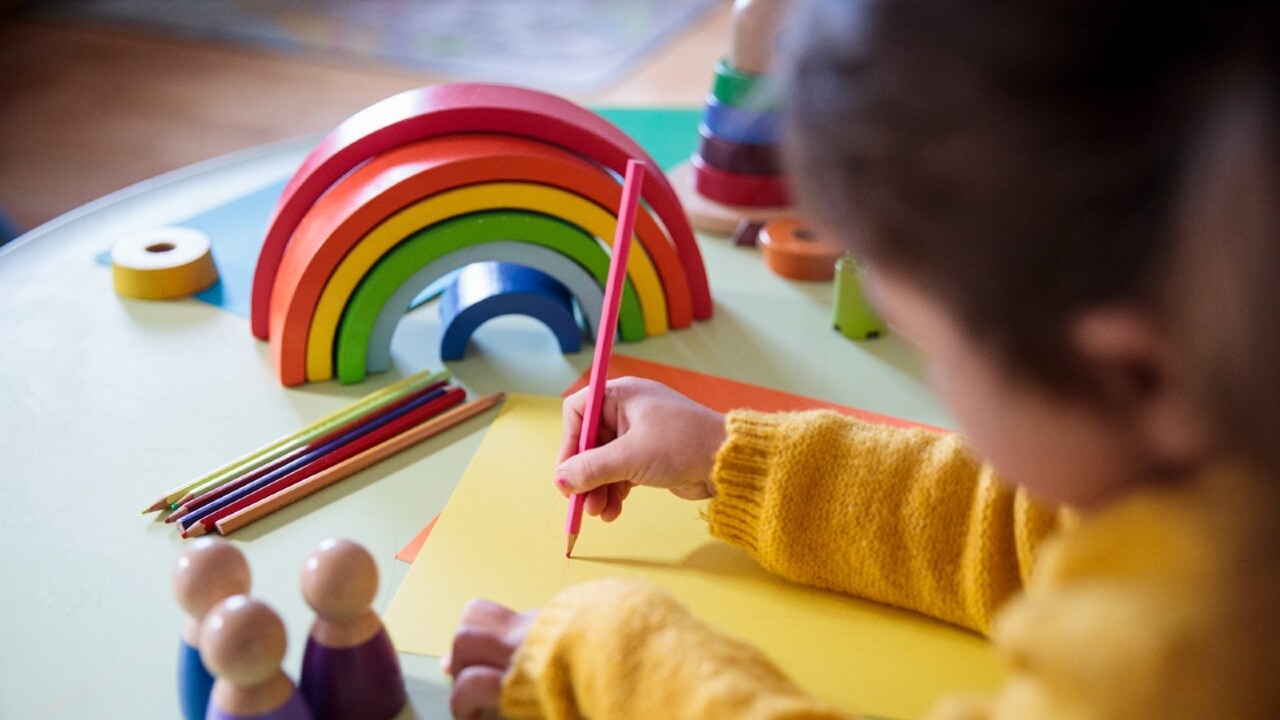
EXCLUSIVE
Students at a Sydney primary school are being told to put their hands on the ground and repeat “always was, always will be Aboriginal land” as part of the Acknowledgement of Country ceremony before each assembly.
It’s understood schools are also increasingly opting to play the “Aboriginal instruments” Australian national anthem in lieu of the standard version for assemblies.
“I’m not sure a lot of people know,” said one mum from NSW’s lower Blue Mountains, who did not want her children’s school named. “We have to touch the ground and say ‘always was, always will be Aboriginal land’ at the start of assembly at school now.”
The mum said she “only noticed recently” the addition of the updated national anthem accompanied by the didgeridoo and stick instruments.
Versions of the national anthem featuring Aboriginal instruments have been in use at some schools for several years, and are listed among official recordings on the Prime Minister and Cabinet website.
“A lot of the parents look confused when they place their hands on the floor for the Acknowledgement of Country,” the mum added.
Another parent at the school confirmed touching the ground had been a standard part of assemblies for some time.
It’s understood that the NSW Department of Education advocates the use of the Acknowledgement of Country at schools across the state as a sign of respect to local Indigenous communities.
The department declined to comment.
The phrase “always was, always will be” emerged from the Aboriginal land rights movement in the 1980s and is a common protest rallying cry.
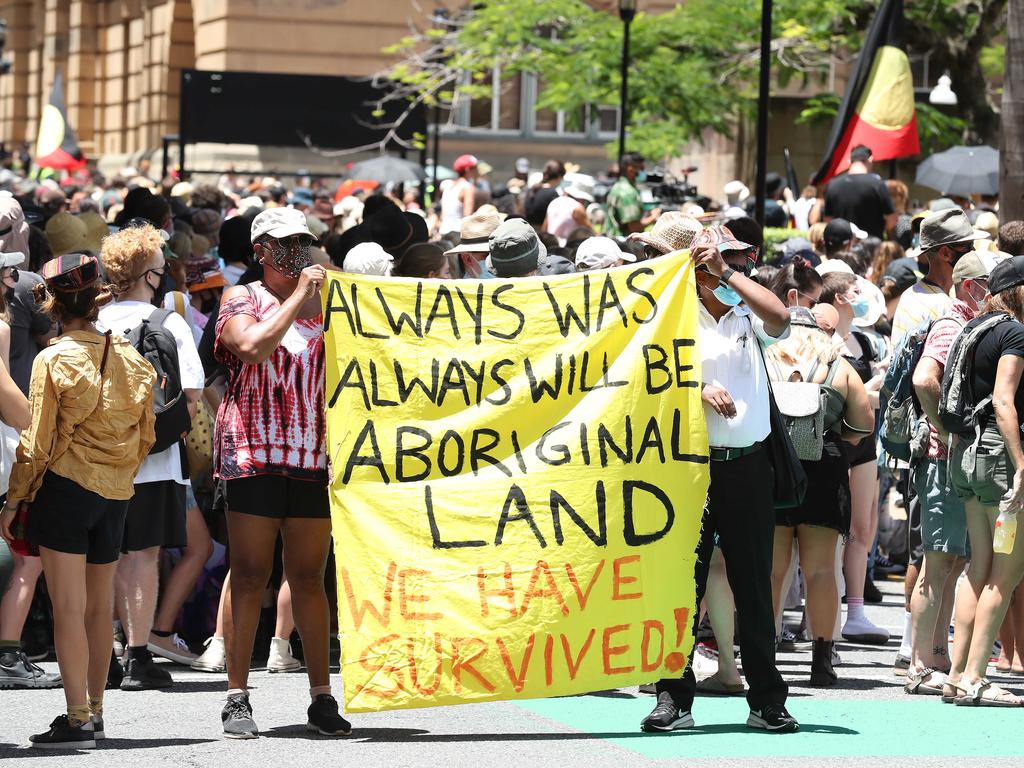
Thomas Mayo, a leading campaigner during last year’s failed Voice to Parliament referendum, will release a new book next month titled Always Was Always Will Be, laying out the path forward for constitutional recognition.
“We won’t give up,” Mayo told 2GB on Sunday night.
“It’s fair that Indigenous Australians are recognised — 60,000 years of continuous heritage and culture — that we should be consulted with in a proper way before decisions are made specifically about us. It’s just justice. As they say it’s a long arc to justice but we will get there because we will never give up.”
Dr Bella d’Abrera, director of the Foundations of Western Civilisation Program at the Institute of Public Affairs (IPA), said the primary school Acknowledgement of Country described by parents was “an appalling example of activism and division being forced upon our students, but it’s not surprising these ceremonies at schools are becoming more elaborate by the day”.
“While such activities are not mandated in schools, many teachers feel compelled to perform them given that the National Curriculum prioritises Indigenous issues in the classroom, and activists in the education sector push this agenda,” she said.
“There is no place for activism in any classroom in Australia.”
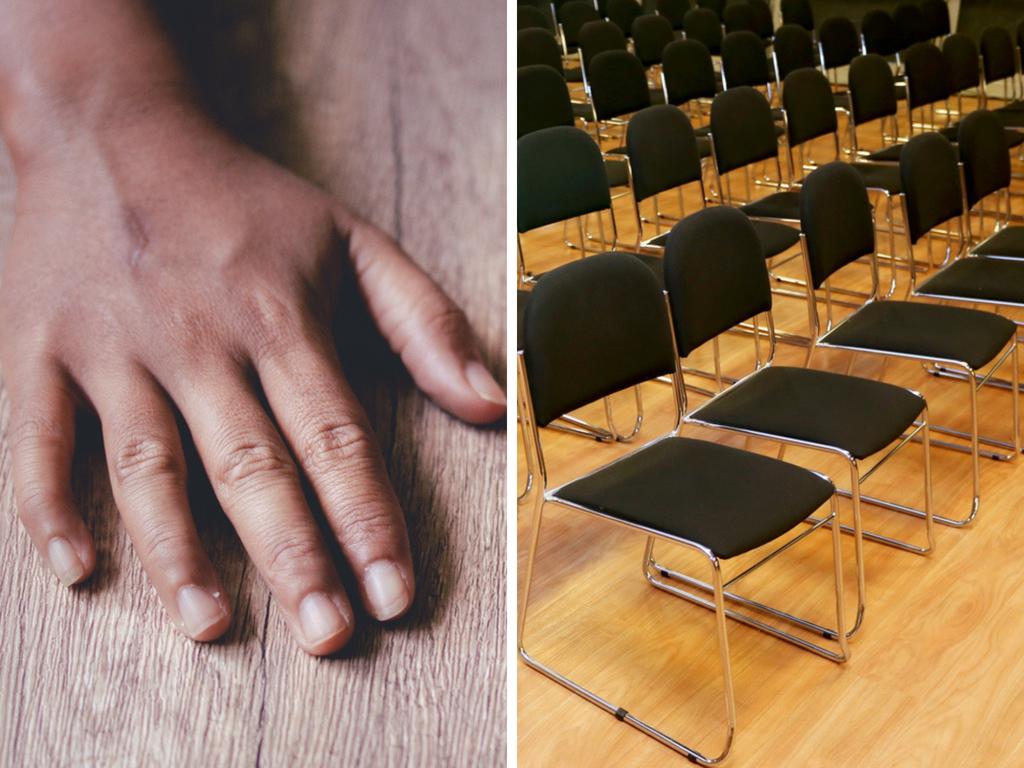
Welcome to Country and Acknowledgment of Country ceremonies have gradually grown more elaborate and now sometimes request audience participation.
Last month, public servants in Queensland attending an awards ceremony were “were asked to take their shoes off, wiggle their toes and close their eyes so they would feel more connected to the earth”, The Courier-Mail reported.
The NSW Teachers Federation led the push to introduce the Welcome to Country and Acknowledgement of Country at schools across the state in the early 2000s.
A leaflet from the union to members outlines how to perform the ceremonies and provides examples, but notes “people are encouraged to develop their own meaningful words that are relevant to that gathering”.
Teachers are encouraged to consult with their school’s Aboriginal Education Committee and local Aboriginal organisations to provide advice on the “appropriate level of recognition” and “appropriate ceremonies and performances”.
Speaking to Sky News last month, Shadow Indigenous Australians Minister Jacinta Nampijinpa Price said the overuse of the Welcome to Country could actually make people feel unwelcome in their own country.
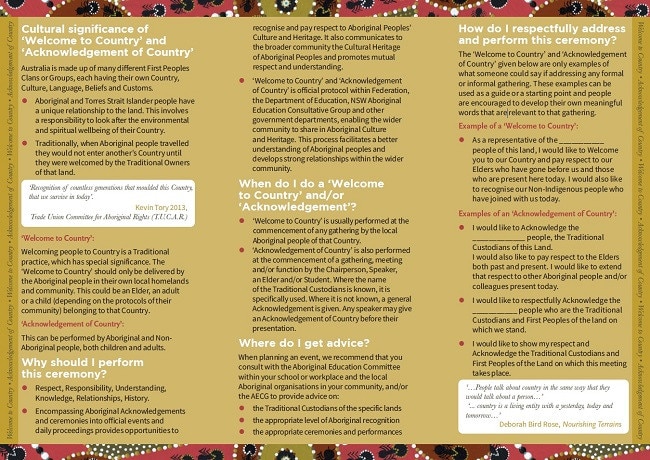
“I get the sense that’s what many people feel about that,” Senator Price said.
“You know, I was born here, I belong to this country just like anybody else so why should we have to be continually welcomed to the nation that we’re born in? Again, I think reserve these things for special occasions, if there’s foreign dignitaries or something like that.”
Senator Price said Australians should not be “confronted with it at every single opportunity”.
“I feel ridiculous when actually people will say, I want to acknowledge and pay our respects to all the Indigenous people in the room, and you look around the place, and sometimes you’re the only one in the room,” she said.
“And it’s like, OK, can we just get on with thing? Why are we being singled out here? Let’s just move forward, let’s just get on with the job, let’s do things in practical terms to produce outcomes on the ground and just stop with the waffle and the nonsense.”
It comes after a primary school in Melbourne faced backlash last week for making students sing an alternative Indigenous national anthem, the Herald Sun reported.
Yarraville West Primary School has been singing the new version, written by Seekers star Judith Durham and Indigenous singer-songwriter Kutcha Edwards among others, for the past six months.
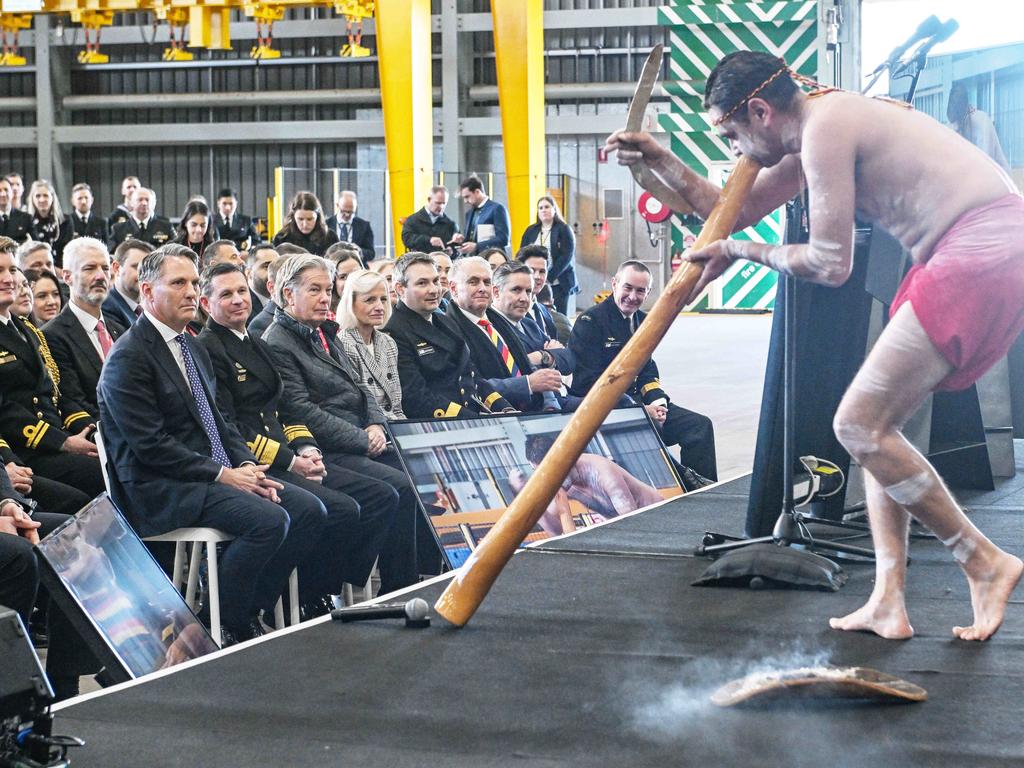
The opening lyrics have been changed from “Australians all let us rejoice, for we are one and free” to “Australia, celebrate as one, with peace and harmony”.
It also includes the lines, “Our precious water, soil and sun, grant life for you and me. Our land abounds in nature’s gifts to love, respect and share, and honouring the Dreaming, Advance Australia Fair. With joyful hearts then let us sing, Advance Australia Fair. Australia, let us stand as one, upon this sacred land.”
Some families expressed anger at the school for the “confusing” change, telling the Herald Sun their children did not know the words to Australia’s official anthem.
Victoria’s Education Department told the newspaper it was working with Yarraville West Primary School “to ensure the appropriate use of the national anthem in school events”.
Former Prime Minister Scott Morrison unilaterally changed the word in the opening line of the anthem from “young” to “one” at the end of 2020, sparking renewed calls to further update the song to better represent Indigenous history.
Another Sydney primary school, Ramsgate Public School in the city’s south, also came under fire recently for playing an Indigenous rap song that described Captain Cook as a “murderer” and “white devil” from the “land of the white skin”, and talked of hunting the explorer down with the “desire to kill” and make “his cold, white heart bleed”.
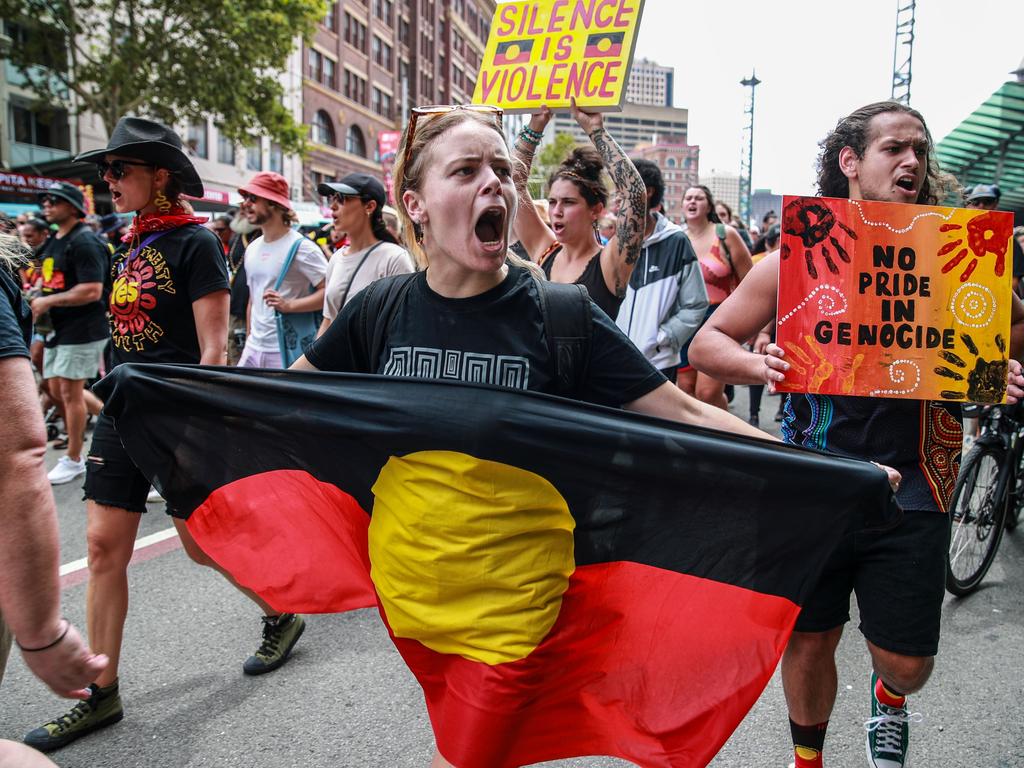
The 2020 track, ‘Bagi-la-m Bargan’ by Indigenous rapper Birdz, was played over the school’s loudspeakers for at least a fortnight in honour of Reconciliation Week, according to a “shocked” father who complained to 2GB radio host Ben Fordham.
NSW Education Minister Prue Car told Fordham it was “very concerning” and shortly after the radio segment, an Education Department spokesperson said the song had been removed from the school’s playlist.
“We apologise for the distress caused to any parents or children over the choice of school bell song at Ramsgate Public School last week,” they said.
“The song was chosen to mark Reconciliation Week and was not intended to be divisive. The school’s leadership has been counselled about making appropriate choices for the school bell song. Principals and staff across the state will be reminded of their professional obligations in curriculum delivery and resource selection. This includes any songs chosen to use as a school bell.”
Meanwhile, a report by the IPA last month analysing the federal government’s Early Learning Framework, which is mandatory for early childhood centres, claimed children under five were being “indoctrinated” with “divisive critical social justice theories such as diversity, inclusion and equity”.

The government document, titled Belonging, Being and Becoming, has embedded two new elements, “Aboriginal and Torres Strait Islander Principles” and “Sustainability”, which “mean that early learning centres must support zero- to five-year-olds to become ‘active citizens’ in the journey of reconciliation and ‘support children’s commitment to social justice’”, according to the IPA.
The current national learning framework was approved by all education ministers in 2023 and came into effect on February 1, 2024.
The conservative think tank’s analysis found variations of the words “diversity, equity and inclusion” mentioned 149 times in the document, “Aboriginal and Torres Strait Islander” was mentioned 87 times and “sustainability” 35 times — but there were zero references to “parents”, “mother” or “father”.
Among the recommendations from the federal childcare regulator, the Australian Children’s Education and Care Quality Authority (ACECQA), are that “children perform a daily Acknowledgment of Country and for both Aboriginal and Torres Strait Islander flags to be displayed in all settings”.
“ACECQA also supports the notion that ‘early childhood is a critical time for children to begin understanding and exploring gender’, and that they should ensure that childcare centres are ‘safe spaces where LGBTQI+ children and families feel welcomed, honoured, and supported’,” the IPA report said.
“Suggestions to educators include ‘resisting heteronormative ways of working and ensuring rainbow families are meaningfully included and experience a sense of belonging’.”




